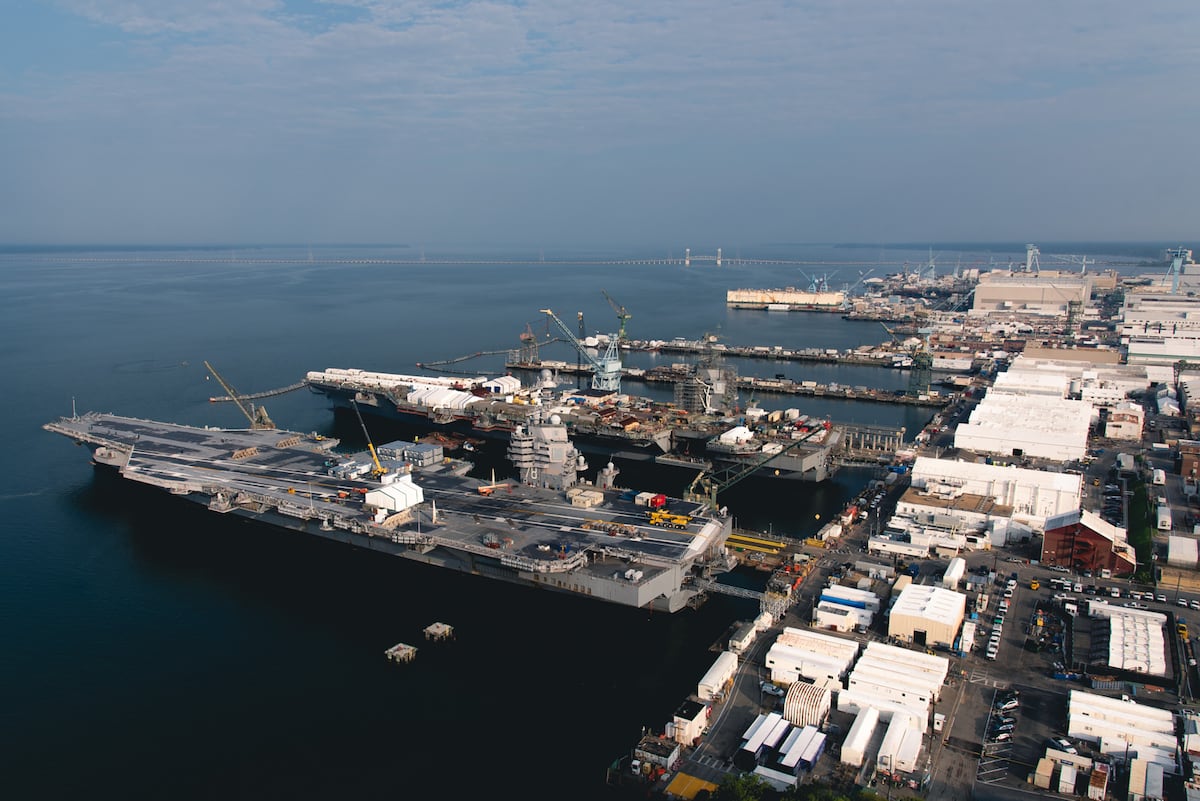Two new aircraft carriers will yet again experience delays in delivery, after already having previously delayed in past years, Navy budget documents reveal.
The delivery of the Navy’s next Ford-class aircraft carrier, to be christened the John F. Kennedy, will now be delayed by two more years, the Navy’s Fiscal Year 2026 budget justification documents show.
It had been scheduled to be delivered this month. Delivery is now pushed back until March 2027. Before this latest setback, the carrier had already been delayed by an estimated one year.
Additionally, another repeat delay is in store for the future carrier Enterprise, which was scheduled to be delivered in September 2029. The budget documents now show that “due to delays in material availability and industry/supply chain performance,” it is now projected to be finished in July 2030.
This is not the first delay for the Enterprise, either. It was scheduled for delivery in 2028 before being pushed back to 2029 last year, according to USNI News.
The sudden year-long delay for the John F. Kennedy, according to the budget documents, is “to support completion of Advanced Arresting Gear (AAG) certification and continued Advanced Weapons Elevator (AWE) work.”
The Ford class, the newest type of aircraft carrier, features new reactor and electric plants, an advanced propulsions system and an Electromagnetic Aircraft Launch System, among other updates.
Both the AAG and AWE systems lagging on the future John F. Kennedy are currently operational on the aircraft carrier Gerald Ford, which departed from Norfolk, Virginia, two weeks ago as the lead vessel of its strike group on a deployment to Europe amid tensions with Iran.
The creeping delays facing the new aircraft carriers are the latest examples of what has been a decades-long struggle within the Navy to obtain new ships.
“We are behind in every ship class [by] different rates, but at least years,” Adm. James Kilby, acting chief of naval operations, recently told the Senate Appropriations Subcommittee on Defense.
The Pentagon is attempting to remedy the situation by awarding contracts to boost ship manufacturing, developing unmanned systems and modernizing centuries-old shipyards to accommodate new vessels.
Zita Ballinger Fletcher previously served as editor of Military History Quarterly and Vietnam magazines and as the historian of the U.S. Drug Enforcement Administration. She holds an M.A. with distinction in military history.
Read the full article here








Leave a Reply